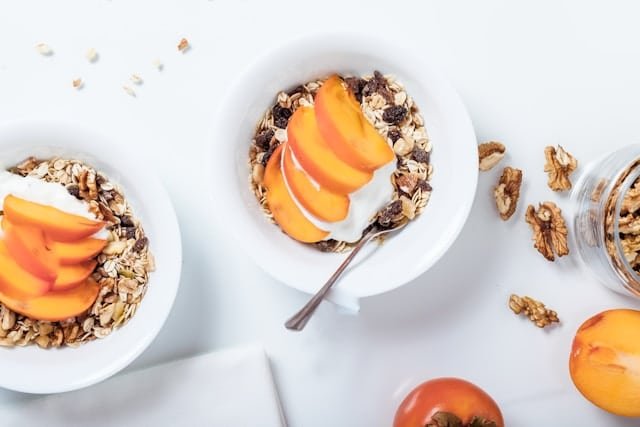Introduction
The Importance of Fiber in Your Diet, While people are busy worrying about getting enough protein or underestimating their calorie intake, they tend to forget that fibre should form part of a balanced diet. However, understanding the importance of fibre can have wonderful benefits for overall health and well-being. As the main constituent of fruits, vegetables, whole grains and legumes, dietary fibre provides key support for keeping bowels regular and preventing constipation. It functions as a prebiotic by nourishing their essential trait of gut good bacteria In this way, fiber aids digestion, as well as other metabolic systems
But with fibre, the boons go well beyond digestion. Research has shown that people on a high–fibre diet feel full and are thus less likely to make unhealthy food choices. This can naturally lead to a decreased calorie intake–which can, in turn, lead to weight maintenance or loss. Furthermore, fibre has been shown to lower cholesterol and help reduce heart disease for people in danger. It controls blood sugar levels and is particularly beneficial for diabetics or people who could develop the condition.
When these points are remembered properly, it becomes clear that, especially for good health and comfort, fibre is not a piece of propaganda but a crucial underpinning. Adding a variety of high-fibre foods to your diet is a way of taking charge of your digestive health and early prevention against many chronic diseases. If you want to improve your whole health, control weight, or just feel better every day, having a good mix of soluble and insoluble fibres in your diet is essential.
The Importance of Dietary Fiber for Digestive Health
Fibre performs an essential function in the body in that it assists in the process of maintaining a healthy digestive system. The fibre in dietary products helps in increasing stool bulk, hence promoting bowel movement. The high fibre in your diet hastens the movement of food through your digestive system, making the absorption of both nutrients and vitamins. The bulky and soft stool moves faster by the digestive system, relieving constipation. The fibre also helps prevent other digestive tract distress transmitted by a sluggish bowel, which includes haemorrhoids, diverticulitis, and fistula. If the quantity of fibre is inadequate in your diet, some symptoms you might experience may include bloating, gas, and an uncomfortable feeling in the gut region. Finally, fibre is also used in the body as a prebiotic, as it helps nourish the beneficial bacteria in the body while getting rid of the bad ones by promoting the growth of these best bacteria, colonising them in the gut and ending up having more advantages.
Honestly, to me, fibre works in the body in that it is a necessity in the body to ensure that the digestive system functions. It is essential in the diet.
Definition and Types of Fiber:
Soluble Fiber: Soluble fibre is a crucial dietary component and will transform into a gel-like substance in water. It exists in many types of food, such as oats, peas, beans, apples, citrus fruits, carrots, barley and psyllium. It also increases general health. Down cholesterol is important for the heart and controls blood sugar levels; the resulting benefit might be partially due to decreased consumption of energy-dense obese foods. The benefit also involves slowing sugar absorption and dropping cholesterol levels in the blood. For weight control, a diet rich in soluble fibre will fill your stomach and reduce your appetite, the last two of which are key elements needed when looking for ways to keep or attain a healthy weight . To take advantage of these benefits and maintain your supreme digestive health, try to include a variety of fiber sources that can be dissolved in water in your diet.
Insoluble Fiber: The offending fibre simply passes via the digestive tract undigested. It increases the mass of the stool and supports the normal teeth-cleaning process. It is commonly found in whole-wheat flour, wheat bran, cereals, nuts, beans, and vegetables like cauliflower, green beans, and potatoes. In addition, by contributing to the fuller feeling of meals without additional consumption, insoluble substances can help people lose weight or stay healthy.
Health Benefits of Fiber:

Weight Management: Makes you feel full for longer It can help cut down the need to eat and curb overeating. It’s beneficial for anyone seeking to achieve or sustain a certain weight since feeling full longer aids in weight loss or management. Thus, eating high-fibre foods is an excellent tool to easily stay within the calorie limits without feeling hungry all the time.
Lowers Cholesterol Levels: Beneficial Analysis Without insoluble fibre, mainly in oats, beans, flaxseed and oat bran cholesterol absorption variety, the soluble this helps in lowering total blood levels of cholesterol and abides by this objective toward reducing low-density lipoprotein, or “” levels. These days, researchers hold that cholesterol is low in the genes, so absorbing it and converting it into human excrement takes time. cholesterol particles in the digestive system. It transports them from the body before they can circulate in the blood vessels, and this protects against heart disease, giving heart health benefits.
Enhances Longevity: Consuming a diet that is rich in fibre, particularly from sources like whole grains, fruits, and vegetables, has been closely associated with a significantly lower risk of dying from a variety of diseases, including cardiovascular disease, various infectious diseases, and diseases affecting the respiratory system.
Digestive Health: Fiber is vital to maintaining healthy and regular movement of the bowels. It lowers the risk of constipation by adding weight and size to your stool and softening it. A diet high in fibre aids the digestive wave of the gut frequently and completely and lowers your chances of developing haemorrhoids. Furthermore, high-fibre diets can help prevent colon cancer as well. Fibre absorbs water, making stools softer and more natural to pass, which saves you from the pain and possible complications caused by constipation.
Heart Health: Study results show that high fibre intake is linked to lowering the risk of heart disease. Consuming foods with plenty of soluble fibre, in particular, makes a crucial impact in heart health–that being to drop overall blood cholesterol levels. The key effect of this reduction is to lower blood concentrations of LDL, also called “bad” cholesterol, which is a significant factor in developing coronary diseases. Eating a diet high in fibre is clearly good for the heart; it also leads to lasting health benefits.
Weight Management: High-fiber foods tend to be more fulfilling than their low-fiber counterparts, and you’re probably just going to be consuming less and feeling all “fed up” for longer. Therefore, including these food elements in your diet can help you manage your appetite and, naturally, promote the process of getting your weight under control. Moreover, high-fibre products typically take longer to chew and fully eat, meaning you feel fuller completely. Furthermore, they are less energy-dense, meaning they contain fewer calories per ounce serving the same size, which is ideal for someone who would like to reduce their daily caloric intake without cutting back on portion size. This quality can be extremely effective in terms of both daily caloric consumption and your long-standing battle with weight.
Blood Sugar Control: In conclusion, fibre, particularly soluble fibre, is vital in controlling an individual’s sugar intake and elevating sugar levels in the body. Allowing diabetics to control their glucose uptake in a gradual manner is highly beneficial, as they do not have to stick to the regular spikes and humbles in sugar, which are notable among them. This slight diet adjustment can be a game-changer in the holistic management of the condition and an indication of the ardency of dietary fibre in increasing health levels.
Recommended Daily Intake:
The American Heart Association recommends that adults strive to achieve a dietary fibre intake of 25 to 30 grams per day, emphasising that this fibre should come directly from food sources rather than dietary supplements. This nutritional guideline is designed to help individuals maintain a healthy digestive system and support overall health and well-being.
Incorporating Fiber into Your Diet:
When you start your day off right with whole-grain options, your body will be both healthier and more satisfying. Whole grain staple foods are a combination of essential nutrients such as vitamins, minerals, fibre, protein and fat. They help amplify your fuel for the day ahead; whole grains keep blood sugar levels in check long after breakfast is over. If you consider eating only whole-grain products, your Baikal cycle will definitely be healthy and, moreover, your intestines feel really comfortable You can now have a healthier start to your day by making whole grains a staple of your morning diet!
Understanding Daily Fibre Needs
For a healthy digestive system, stable blood sugar levels, and the management of weight, fibre is a must. Daily fibre requirements vary depending on age, sex, and overall health. Women should consume about 25 grams per day; men need roughly 38 grams of the stuff However, most people take in far below this minimum, which leads to all kinds of health problems.
Fibre comes in two forms—soluble and insoluble. Soluble fibre is dissolvable in water, and it helps to lower your blood sugar as well as prevent coronary heart disease. Food containing high levels of soluble fibres includes oats, beans, apples and oranges. Insoluble fibre, in contrast, is unable to dissolve in water and helps move parts of the digested food along. One main function of this kind of dietary fibre is to help prevent constipation; foods high in such insoluble fibres are whole grains and bran of wheat, as well as vegetables.
A variety of fibre-rich foods each day will meet your daily requirements for fibre, And when you do so, you will also get both types of fibre. Excellent sources of fibre, in general, are foods like fruits and vegetables, legumes and whole grains So simple things like switching to whole wheat bread If you eat fruits instead of sweet, processed food as snacks One good way to increase the amount of fiber in your diet is to make a big difference.
Understanding and meeting your body’s daily fibre needs plays a crucial role in maintaining good health and warding off chronic diseases It supports digestive health, gets rid of that empty feeling and may even help you to lose weight Follow your fibre intake closely the health pay off can be great, isn’t it time you died.
Include Fruits and Vegetables with Every Meal: Berries – fruits and vegetables are not only high in vitamins and minerals but are also ideal for the soluble and insoluble fibre you require to keep the gut healthy. You can start by regularly adding a few berries to oatmeal, such as strawberries, blueberries, and raspberries. You may use several leafy greens, cherry tomatoes, and cucumber with lunch salads and dinners. Mixed carrot sticks, cucumber portions, or apple slices are also perfect daily snacks. Every meal contributes to a balanced diet and good health. Besides, eat high-fibre breakfast cereal or oatmeal. Moreover, I suggest some chia or flaxseed on my first meal drink or yoghurt. A whole grain toast with avocado or a quinoa fruit salad is also an option. It helps keep one regularly nourished and more satisfied all day.
Snack on Nuts, Seeds, and Dried Fruits: These items offer a convenient and nutritious way to boost your fibre intake throughout the day. Nuts like almonds, walnuts, cashews, seeds such as chia, flaxseeds, pumpkin seeds, and various dried fruits like apricots, raisins, and figs are packed with essential nutrients and fibre. They’re perfect for on-the-go snacking or as a healthy addition to meals. However, it’s necessary to be mindful of the portions since they’re also high in calories. Moderation is vital to enjoying their health benefits without overindulging.
Don’t Forget Legumes: Beans, lentils, and peas are not only excellent sources of dietary fibre but also packed with protein, vitamins, and minerals. Including these nutritious powerhouses in your diet can benefit your health in multiple ways, from improving digestion to reducing the risk of chronic diseases.
Switch to Whole Grains: Switch to their wholegrain variants to get rid of white bread, pasta and rice. This simple change significantly increases dietary fibre intake, benefiting digestion and health overall. Whole grains also provide essential nutrients such as protein and fibre, B vitamins, antioxidants and trace elements: iron, copper, and zinc. Electrical bow can help you lay off those rich French dishes when your waistline is in danger of becoming encased in a belt of unfriendly calories, Not only that, but you will also be taking in less dietary cholesterol, which means having a better chance for good cardiovascular health. Recommended pound loss resultant:—Whole grains are of a healthy value to add to your meals as they can support weight management, lower the risk of heart disease or add to an excellent digestive system.
Beans and Legumes: Enhance your diet by incorporating nutritious beans, lentils, chickpeas, and other legumes into your meals several times a week. These protein-rich foods offer a plethora of health benefits and contribute to a balanced and diverse diet.
Frequently Asked Questions
Q: what is the importance of fibre in your diet?
A: Fibre is crucial in maintaining good health and preventing chronic diseases. It supports digestive health, contributes to a feeling of fullness, aids in weight management, regulates blood sugar levels, and helps reduce cholesterol levels.
Q: Why are whole grains important for a healthy breakfast?
A: Whole grains are essential for breakfast because they kickstart your metabolism and provide sustained energy. They support a healthy digestive system, contribute to heart health, and help maintain a balanced diet.
Q: Is fibre necessary for weight loss?
A: Yes, fibre is essential for weight loss. It contributes to feeling full and satisfied, thereby reducing overeating. Including high-fibre foods in your diet can also help you maintain a healthy weight by reducing the risk of obesity and promoting regular bowel movements.
Q: What are the benefits of taking fibre supplements?
A: While it’s always best to get your fibre from whole, natural foods, fibre supplements can help increase your daily intake. They can be handy for individuals who struggle to meet their recommended daily fibre needs or have specific dietary restrictions. However, consult a healthcare professional before incorporating supplements into your diet.
Q: What are the recommended daily fibre intake levels for men and women?
A: Women should aim for about 25 grams of fibre per day, while men should target around 38 grams. Most people consume far less than these recommended amounts, which can lead to various health issues.
Q: Can you explain the difference between soluble and insoluble fibre?
A: Soluble fibre dissolves in water and can help lower glucose levels and blood cholesterol. It’s found in oats, beans, lentils, and certain fruits. Insoluble fibre does not dissolve in water and aids in moving food through the digestive system, preventing constipation. It is found in whole grains, wheat bran, and vegetables.
Q: What is the role of fibre in human digestion?
A: Fibre plays a crucial role in human digestion by adding bulk to stool, making it easier to pass through the digestive tract. It also helps regulate bowel movements and keeps the digestive system healthy by promoting the growth of beneficial bacteria. Fibre can also contribute to feeling fuller for extended periods, aiding in weight management and reducing snacking between meals. Additionally, fibre can
Q: How can I increase my fibre intake through dietary choices?
A: Incorporating fibre-rich foods such as fruits, vegetables, legumes, and whole grains into your meals can help meet your daily fibre needs. Simple swaps, like choosing whole grain bread over white bread or snacking on fruits instead of processed foods, can also significantly increase your fibre intake.
Q: Why is it important to include fruits and vegetables in every meal?
A: Fruits and vegetables are packed with vitamins, minerals, and both soluble and insoluble fibre, which can aid in digestion and promote gut health. They contribute to a balanced diet and overall health and well-being.
Q: What are some high-fibre snack options?
A: Nuts, seeds, and dried fruits are convenient and nutritious ways to boost fibre intake. Examples include almonds, walnuts, cashews, chia seeds, flaxseeds, pumpkin seeds, dried apricots, raisins, and figs.
Q: How can legumes benefit my diet?
A: Legumes like beans, lentils, and peas are excellent sources of dietary fibre, protein, vitamins, and minerals. Including these in your diet can improve digestion, support weight management, and reduce the risk of chronic diseases.
Q: What are the benefits of switching to whole grains?
A: Whole grains provide essential nutrients such as protein, fibre, B vitamins, antioxidants, and trace minerals. They help with weight management, reduce the risk of heart disease, and support a healthy digestive system.
Q: How often should beans and legumes be included in meals?
A: It’s beneficial to include beans, lentils, chickpeas, and other legumes in your meals several times a week. They are protein-rich and contribute to a balanced and diverse diet.
Conclusion
Incorporate fibre-rich foods, such as whole grains, beans and legumes, fruits and vegetables into your diet, and you will experience a variety of health benefits, with its perfect blend of being a helper in the digestion and promotion good free addition to one’s weight management strategies as well as risk reduction against many chronic diseases. Fiber plays an important part in maintaining overall well-being.
By making minor dietary changes and integrating high-fibre snacks into your daily routine, you can easily meet your daily recommended intake of fibre and enjoy the blessings that come with a healthy digestive system. Always consult a healthcare professional before making significant dietary changes or taking supplements.
So you should include plenty of such foods in your diet to be a happier and healthier person! Continue to look for different sources of fibre and try out new recipes. Your meals will be more satisfying and nutritionally rich that way as well. You are bound to enjoy a higher quality of health with regular exercise and a well-balanced diet. And chronic diseases can be held off this way. So start your day with a fibre-packed breakfast, include fruits and vegetables in every meal, and remember to eat high-fibre snacks throughout the day. Your body will thank you for those efforts!

Mariyam
Dr. Mariyam Hamdan is a highly skilled gynecologist specializing in women's health. With a medical degree from American University Sharjah, United Arab Emirates, she offers expert care in preventive services, reproductive health, pregnancy management, and menopausal support. Dr. Mariyam is dedicated to providing personalized, patient-centered care, and is committed to educating and empowering women to take charge of their health.








